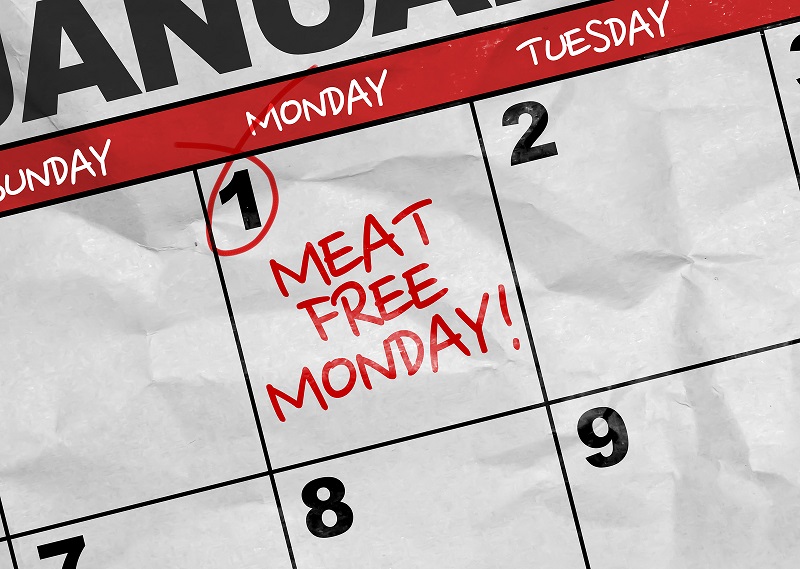That organic living is a conscious health choice
What Is This Plant-based Push All About?
Globally, more people are opting to cut back on or even cut meat out of their diet. Why? The reason behind this choice varies from person to person.
Religion and animal welfare have been resounding reasons for long time, but three new viewpoints have emerged over the years:
- Health - The body of scientific research suggesting connections between meat consumption and chronic conditions - including cancer, diabetes, obesity and heart disease - continues to grow. Conversely, plant-based diets seem to offer preventative effects.
- Budget - This includes reduced health care expenses, as well as weekly food costs, as animal products generally bear heftier price tags as compared to their plant-based peers.
- The planet - People are becoming increasingly aware of the burdensome carbon footprint (fuel, water, land and greenhouse gases) of livestock rearing and meat production. If you're looking at ditching your carnivorous habits and jumping on the plant-based wagon, here are a few popular movements to hook onto for support and solidarity, and some of the considerations surrounding each one.
Veganism
While the name was coined in the mid-1950's, the concept of living sans animals stretches back to ancient times. Dietary vegans abstain from consuming anything that contains or is derived from animals. This includes meat, poultry, seafood, eggs and dairy but also less obvious ingredients including honey as well as gelatin, which is extracted from animal bones or tissues.
Others often described as 'ethical' vegans go beyond diet and extend the no-harm-to-animals philosophy into other areas of their lives. This lifestyle commitment involves keeping animal-derived products out of their cosmetic drawers, cleaning supply closets and wardrobes. With the wealth of easily accessible vegan-friendly resources - restaurants and foods as well as household, personal care and clothing consumers are now able to lead a vegan lifestyle far easier than before.
Nutritionally speaking, however, this regime requires careful attention to nutrient adequacy. Getting sufficient quantities of certain vitamins, minerals and macronutrients - such as proteins, vitamin B12, iron and calcium - can pose a challenge. Deficiencies aren't impossible to avoid, but they are easy to slip into and difficult to surmount.
Vegetarianism
Generally speaking, vegetarians avoid meals that include meat, poultry and fish, but allow animal products such as eggs or dairy. The vegetarian subcategory termed 'lacto-ovo'- referring to dairy and eggs, respectively - spells this out more clearly. Others, termed 'pescetarians', cast their net slightly wider to include fish and seafood. Such regimes offer many of the aforementioned benefits, while reducing the risk of nutrient inadequacies and offering greater dietary freedom on a day-to-day basis.
Meatless Mondays
In comparison, this initiative is relatively new. The movement has 100-year-old roots, but was only formally launched by the Johns Hopkins University in the United States in 2003. In under two decades, it now boasts a global reach that includes individuals, communities, schools, hospitals, restaurants and organisations. What does this entail? Quite simple, really: no meat on Mondays. Giving up meat just one day per week can translate to a 15 per cent decrease in the risk of health conditions associated with a meat-heavy diet. If applied on a global scale, it could mean a 15 per cent cut on the meat burden environmentally.
Why Monday, you ask? Studies suggest that Monday is the easiest day to initiate and sustain behavioral change. As for cons, there are few. You probably just need to be mindful of what is in your homemade, store-bought and restaurant meals as you kick off the working week.
Flexitarianism
Yes, another '-arian' to add to the list. This diet shares many of the same intentions of the others, just that it allows for greater flexibility. When it comes to food choices, flexitarians - like vegans and vegetarians - predominantly eat plant-based foods, but allow for an occasional portion of meat, poultry or fish. Unlike Meatless Mondays, flexitarians aren't held to a particular day of the week - but can opt in or out of meat eating at their own discretion.


























_1672804154.jpg)

_1611290459.jpg)